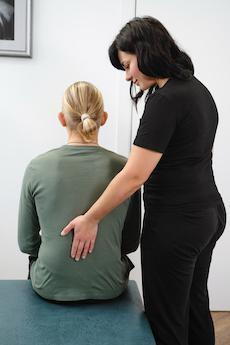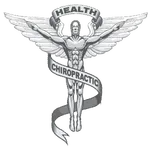Prominent Chiropractic Care in Knee Pain Management

- posted: Dec. 04, 2023
Knee pain is pervasive, ranging from mild inconvenience to debilitating agony due to various causes like aging, injuries, or overuse. This necessitates a nuanced approach to management. Chiropractic care emerges as a non-invasive solution, targeting structural imbalances in the musculoskeletal system.
This introduction sets the stage for a focused exploration of chiropractic interventions in knee pain management.
Understanding Knee Pain

Osteoarthritis, a degenerative joint disease, takes center stage in the pantheon of knee pain instigators - the gradual erosion of cartilage within the knee joint leads to friction, inflammation, and discomfort. Traumatic injuries, ranging from ligament tears to fractures, further compound the issue. Prolonged and repetitive stress on the knee, a consequence of overuse, contributes to conditions like tendinitis and bursitis, perpetuating the cycle of pain.
The repercussions of knee pain extend far beyond the physiological realm, infiltrating the fabric of daily life. Mundane tasks such as walking, climbing stairs, or even standing become Herculean feats, eclipsing the simplicity they once held. The psychological toll is equally profound, as the persistent presence of pain infiltrates the core of one's well-being, eroding the quality of life.
Understanding knee pain management near me requires a dispassionate exploration of its origins, dissecting the intricate interplay of biological factors that conspire to sow discomfort. Acknowledging the common causes and comprehending the profound impact on daily activities and quality of life, we lay the foundation for a solid approach to knee pain management.
What is Chiropractic Care?
Corrective chiropractic care is a specialized field of healthcare that zeroes in on the musculoskeletal system, particularly the spine, with the knowledge that proper alignment and muscle retraining are fundamental to restoring overall health and function.
Armed with a deep understanding of anatomy and biomechanics, chiropractors employ manual adjustments to rectify misalignments, aiming to restore optimal function to the nervous system.
The foundation of chiropractic care acknowledges that the body can inherently heal itself under optimal conditions. This principle underscores a departure from symptomatic treatments, instead delving into the root causes of ailments.
The spine, viewed as the central nervous system highway, takes precedence, as misalignments are believed to impede the body's self-healing mechanisms.
Chiropractic care is inherently holistic, considering the individual as an integrated system rather than a collection of disparate parts. This approach extends beyond merely addressing symptoms and optimizing the patient's overall well-being.
By identifying and correcting structural imbalances, chiropractors aim to alleviate specific ailments and enhance the body's capacity for natural healing.
The emphasis on natural healing is a defining characteristic of chiropractic care. Rather than relying on pharmaceutical interventions or invasive procedures, chiropractors work with the body's inherent capacity to repair and rejuvenate.
This aligns with the philosophy that treating symptoms is insufficient. The focus must be on fortifying the body's ability to maintain health autonomously.
The Relationship Between the Spine and Knee Pain

The spine, a marvel of anatomical engineering, is the human body's central pillar. Its intricate network of vertebrae houses and protects the spinal cord, a conduit for the nervous system.
This neural highway is integral to the communication between the brain and the rest of the body, including the knees. Optimal spinal alignment ensures unimpeded signals, fostering the harmonious function of joints, including those crucial to weight-bearing, like the knees.
Deviation from ideal spinal alignment can reverberate throughout the musculoskeletal system, manifesting in unexpected places such as the knees.
Misalignments, often subtle and insidious, can disrupt the intricate choreography of movement, leading to abnormal stresses on the knee joints. This disruption may result in accelerated wear and tear, inflammation, and pain.
Moreover, the nervous system's role in pain perception comes to the forefront. A misaligned spine can compromise the efficient transmission of nerve signals, amplifying the pain perception in the knees. It's a cascade effect where structural imbalance begets functional disruption, laying the groundwork for the emergence and persistence of knee pain.
Chiropractic Techniques for Knee Pain Relief
Chiropractic adjustments form the bedrock of interventions designed to realign the spine and mitigate musculoskeletal imbalances. These precise and controlled manipulations, executed by skilled chiropractors, target areas of misalignment.
By applying calculated force, chiropractors seek to restore optimal spine function, addressing localized issues and the ripple effects that resonate throughout the musculoskeletal system.
Specific Techniques Used for Knee Pain Management
In managing knee pain, Jeranek Family Chiropractic employs a repertoire of specialized techniques tailored to the intricacies of the joint. These may include:

Spinal Adjustments
Focusing on the spine's alignment, these adjustments can indirectly alleviate knee stress by optimizing the neural communication between the brain and the lower extremities.
Soft Tissue Manipulation
Chiropractors may employ techniques targeting the soft tissues surrounding the knee, addressing tight muscles, tendons, or ligaments contributing to pain.
Joint Mobilization
This gentle, non-thrusting technique aims to improve joint function and reduce stiffness, which is particularly beneficial in cases of restricted knee mobility.
Exercise Prescription
Chiropractors might recommend particular exercises or training to improve muscle strength and flexibility that support the knee, promoting sustained stability.
Each technique is meticulously chosen based on the individual's presentation of knee pain, ensuring a tailored and effective approach. By honing in on the root causes through these chiropractic interventions, the goal is not just to alleviate symptoms but to cultivate enduring relief and restore functional harmony to the knee joint.
Benefits of Chiropractic Care for Knee Pain
This section explores the benefits — improved mobility, enhanced flexibility, and expanded range of motion — that characterize chiropractic interventions.
Non-Invasive Approach and Avoidance of Surgery
Chiropractic care champions a non-invasive paradigm, relieving those wary of surgical interventions. By zeroing in on spinal adjustments, manipulations, and targeted techniques, Jeranek Family Chiropractic navigates the intricacies of knee pain without resorting to the surgeon's scalpel.
Improved Mobility, Flexibility, and Range of Motion
At the core of chiropractic care lies a commitment to restoring optimal function to the musculoskeletal system. By addressing misalignments and structural imbalances, chiropractors pave the way for improved mobility, heightened flexibility, and an expanded range of motion.
Reducing Pain and Inflammation Without Medication
In an often saturated situation with pharmaceutical solutions, chiropractic care emerges as a beacon for those seeking options. By leveraging targeted adjustments and manipulations, chiropractors mitigate pain and inflammation at their source. This approach offers relief and sidesteps medication's potential side effects and dependencies, providing a measured and sustainable solution to knee pain.
Collaboration with Other Healthcare Specialists
Health problems are often connected, so it's smart for different kinds of healthcare experts to team up. When chiropractors join forces with specialists from other areas, like orthopedics or physical therapy, it helps create a well-rounded plan. This plan doesn't just treat the symptoms but also gets to the root of the problem. It's a better fit for each person's unique health situation.
Examples of Healthcare Specialists Chiropractors Might Work With
Orthopedic Surgeons
If surgery is needed, chiropractors team up with orthopedic surgeons to ensure smooth transitions between non-invasive care and surgery.
Physical Therapists
Working with physical therapists adds targeted exercises and rehab to chiropractic care, making the overall plan more effective.
Primary Care Physicians
Teaming up with regular doctors ensures a smooth connection between chiropractic care and the broader healthcare plan.
Sports Medicine Specialists
For cases related to sports injuries, collaboration with sports medicine specialists gives extra insight into managing and preventing injuries.
This teamwork ensures that people with knee pain get a complete and combined approach. It shows how healthcare specialists prioritize patient well-being, combining their skills for better care.
Preventative Measures and Self-Care Tips
From apparent lifestyle modifications to targeted exercises and habits, these strategies serve as a proactive defense, embodying a commitment to sustained well-being.
Lifestyle Modifications to Support Knee Health
Maintain a Healthy Weight
Excess weight places undue stress on the knees. A balanced diet, regular exercise, and a healthy weight reduce the risk of developing knee issues.
Mindful Movement Practices
Adopting movement practices that prioritize joint health, such as proper body mechanics and avoiding prolonged periods of immobility, safeguards the knees from unnecessary strain.
Footwear Considerations
Wearing supportive and well-fitted shoes provides a foundation for healthy biomechanics, reducing the impact on knee joints during daily activities.
Exercises, Stretches, and Habits for Preventing Knee Pain
Strength Training for Muscles Around the Knee
Building strength in the muscles surrounding the knee, including the quadriceps and hamstrings, offers protective reinforcement to the joint.
Flexibility Exercises
Regular stretching exercises maintain the flexibility of muscles and tendons, preventing stiffness and reducing the risk of injury.
Low-Impact Cardio
Engaging in low-impact cardiovascular exercises, such as swimming or cycling, promotes overall fitness without subjecting the knees to excessive stress.
Mindful Warm-Up and Cool-Down
Incorporating a brief warm-up and cool-down routine before and after physical activities primes the muscles and joints, reducing the likelihood of strain or injury.
Joint-Friendly Nutrition
Ensuring a diet rich in nutrients that support joint health, including omega-3 fatty acids and antioxidants, contributes to the overall well-being of the knees.
Jeranek Family Chiropractic is Your Trusted Partner in Knee Pain
Chiropractic care is a solid choice for managing knee pain. Dr. Janet Jeranek knows her way around the musculoskeletal system, addressing the root causes of pain. But remember, everyone is different, so seeking professional guidance tailored to your needs is crucial.
Jeranek Family Chiropractic is here for you and has been known and trusted for decades. If you're dealing with knee pain, take the first step by consulting our specialist, who understands your unique situation. Your journey to knee pain management starts by contacting Jeranek Family Chiropractic, a trusted partner in your pursuit of optimum well-being.
Location
Find us on the map
Office Hours
Our Regular Schedule
9:00 am - 11:00 am
2:00 pm - 6:00 pm
Closed
9:00 am - 11:00 am
2:00 pm - 6:00 pm
Closed
9:00 am - 11:00 am
2:00 pm - 6:00 pm
Closed
Closed




